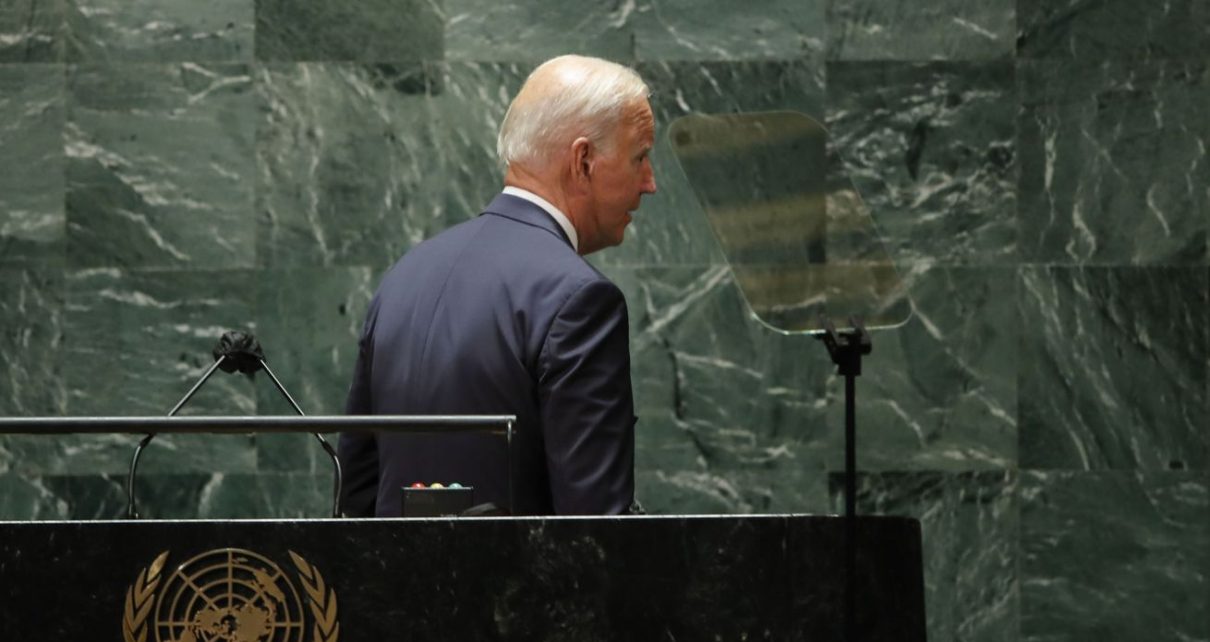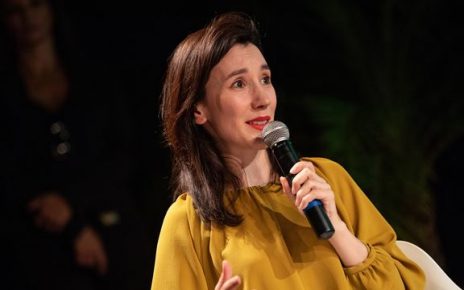
But the test isn’t whether America is back — it’s whether it can help build the world Biden says it wants to build.
In the first United Nations General Assembly of his presidency, Joe Biden assured leaders that America was ready to work together on global challenges — from the Covid-19 pandemic to climate change to the preservation of democracy and human rights.
“This is the clear and urgent choice that we face here, at the dawning of what must be a decisive decade for our world, a decade that will quite literally determine our futures,” Biden said Tuesday in New York City. “As a global community, we are challenged by urgent and looming crises, wherein lie enormous opportunities if — if — we can summon the will, and resolve to seize these opportunities.”
If it sounds familiar, it should. Biden, since his 2020 campaign, has promised to deploy American leadership to help solve the world’s problems, and to do so alongside allies and partners. He has repeatedly framed his presidency as a defense of democracy in a global struggle against authoritarianism. He did both again Tuesday. He talked about the need to untangle the United States’ reliance on military power and use other diplomatic and humanitarian tools instead. He referenced many international organizations — like the World Health Organization — that the US is reengaging with. The United States, Biden said, was “back at the table in international forums, especially the United Nations, to focus attention and to spur global action and shared challenges.”
This vision has always been a deliberate contrast to former President Donald Trump’s “America First” worldview. But Trump is out of office (for now). Biden alone has the power to deliver on his promises of cooperation, of democracy, of human rights — and allies are judging him not compared to the previous president, but on his and his administration’s actions alone.
Biden’s vision reflects that of the United Nations. But the question is still whether the US can deliver.
Biden’s half-hour UN speech was clear-eyed about many of the challenges the world faces. “As we look ahead, we will lead on all the greatest challenges of our time, from Covid to climate, peace and security, human dignity, and human rights,” Biden said. “But we will not go it alone. We’ll lead together, with our allies and partners and in cooperation with all those who believe as we do.”
Biden used this cooperative vision to also frame some foreign policy priorities — among them, competing with China (though he avoided bringing up Beijing directly), reentering the Iran nuclear deal, pushing for a two-state solution between Israel and Palestine, and denuclearizing the Korean Peninsula. It was, in all, a wish list of things that require some mix of diplomacy, multilateralism, and compromise. Biden explicitly rejected the use of military force to achieve these goals, a theme that stood out a month after the US’s Afghanistan withdrawal.
“US military power must be our tool of last resort, not our first. It should not be used as an answer to every problem we see around the world,” Biden said. “Many of our greatest concerns cannot be solved or even addressed through the force of arms. Bombs and bullets cannot defend against Covid-19 or its future variants.”
But there are still many questions about how Biden will fulfill these commitments on climate change, on Covid-19, and on everything else. At the United Nations, Biden, once again, offered an optimistic view of the capacity of the world to work together, and a generous view of America’s role in it.
But that rhetoric has not always matched Biden’s foreign policy reality to date. For example, though Biden is raising the US refugee cap to 125,000 as of this fiscal year, in Afghanistan, tens of thousands of allies were likely still left behind, and the administration is deporting Haitians at the southern border and returning them to uncertain futures. The withdrawal from Afghanistan also raised questions among allies about whether the US did enough to consult with them, and the US’s new deal with the United Kingdom and Australia over nuclear submarines shows America is still flexing to counter China, while angering France, another close ally, in the process.
This is even true on some of the big, existential challenges that the world faces and that, as Biden rightfully says, are impossible to solve alone. On Covid-19, Biden reiterated his administration’s commitment to a pandemic response, saying the administration has sent more than 160 million vaccine doses abroad. This week, Biden is hosting a Covid-19 summit, which will draw more commitments from allies and partners to achieve what Biden said are three goals: “saving lives now, vaccinating the world, and building back better.”
At the same time, the US is debating whether to give out booster shots, which the World Health Organization has said should not be a priority because of unequal vaccine access around the world. About 6 billion Covid-19 vaccine doses have been administered worldwide, the vast majority in higher-income countries. Just 2 percent of the population in lower-income countries has received a first dose. Covax, the international effort to equitably deliver vaccines, reduced its targets for delivery this year.
On climate change, Biden reiterated the emergency and repeated the US’s climate commitments under the Paris climate agreement. But actually achieving some of these goals requires real policy steps, and a lot of that depends on Congress. Right now the future seems uncertain for the Democrats’ big bill on climate, social spending, and more — and that could endanger the scaled-down bipartisan infrastructure and climate bill, too.
Biden also reflected on the values of the United Nations, human dignity and rights. “As we face down violence and insurrection, democracy remains the best tool we have to unleash our full human potential,” Biden said in what sounded like a reference to the US’s internal struggles.
He tried to frame Afghanistan as an end to a chapter of the war on terror, although the fallout in Afghanistan and in so many other countries is likely to continue; Biden also acknowledged this by saying the US would take action against terrorists when it thought necessary.
Biden, before the UN, says “terrorists” can “continue” to expect the US to launch lethal strikes, just not large-scale ground conflict. Then declares this is no longer 2001. This is a reification of the Sustainable War on Terror, down to the rhetoric of ending the enterprise.
— Spencer Ackerman (@attackerman) September 21, 2021
Biden has promised cooperation and commitment, and no matter who is president, there are always limits to this. United Nations speeches are often built on a certain kind of idealism, just like the institution itself.
But presidents choose the themes important to them. Trump was “America First”; he talked sovereignty and self-interest. Biden presented himself as the alternative to that. But the alternative isn’t Trump, it’s to Biden himself. The test is not whether America is back, but whether it can help build the world Biden says it wants to build.





